It’s hard for me to concentrate today, because I’m worried about the fire. Karl tried to burn down the pub on Monday night, and Stella and Sunita were trapped inside. Sunita is probably going to die, and I really don’t care about that (she has become rather horrible of late, and people who become horrible generally die), but I love Stella, dear Stella, with her sad seen-it-all eyes and her incredible blonde hair—what a project, that hair!—and nothing must happen to Stella.
 I am talking, of course, about Coronation Street, the world’s greatest television program, and a show as mysterious to most Americans as cricket and Vegemite. I’ve been trying to introduce my boyfriend to the many joys of the Street, which mostly involves him asking me a series of urgent questions: “But why did that man blow up that van? Why are they pretending the tortoise is alive? Why is that blonde woman hiding all those onions? Is that her sister or her mother? What does ee-oop mean? What does any of it mean?!”
I am talking, of course, about Coronation Street, the world’s greatest television program, and a show as mysterious to most Americans as cricket and Vegemite. I’ve been trying to introduce my boyfriend to the many joys of the Street, which mostly involves him asking me a series of urgent questions: “But why did that man blow up that van? Why are they pretending the tortoise is alive? Why is that blonde woman hiding all those onions? Is that her sister or her mother? What does ee-oop mean? What does any of it mean?!”
So here’s a primer: Coronation Street is a British soap opera set in the fictional Manchester town of Weatherfield. It was first broadcast in December 1960 and is still going strong, making it the world’s longest-running TV soap opera. One character, Ken Barlow, played by William Roache, has been on the show since the very first episode. This is him as a young ’un, wearing a tie to breakfast and looking all embarrassed about being working class:
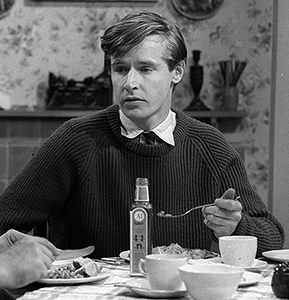
And this is him now, at 80 (he’s had a busy life):

Can you imagine it, your entire life played out on a TV show? And he’s not the only long-standing cast member: there are countless others—Vera, Audrey, Rita—who have knocked about on the Street for decades. Every so often, one of these older actors drops dead off camera, and their character abruptly disappears. “Where’s Maude?” someone asks. “Maude has gone to live in Spain,” someone else explains, and no one is the least bit surprised. Everyone goes to live in Spain eventually.
The action centers around the local pub (the Rovers Return; the absence of an apostrophe is upsetting, yes), the knicker factory (called, awesomely, Underworld), and the newsagents, The Kabin. There’s also a corner shop, a hairdressers, a greasy spoon, and a fancy new joint, Nick’s Bistro (at the pub, you ask for a pint; at the bistro, you ask for a bottle of the red. No further beverage clarification is required.)
Coronation Street screens on Monday, Thursday, and Friday in England, and the time period of each episode mirrors the real world: when it’s Monday in Upper Shittlesthorpe, it’s Monday on the Street. And when it’s Christmas Day in Fudgepack upon Humber, it’s Christmas Day in Weatherfield, which means you and Ken Barlow can open your boxes of Quality Street together and then you and Ken Barlow’s long-suffering wife Deidre can go outside and stand side by side under the same relentless gray sky, smoking a festive cigarette.
There are many, many reasons why you should watch Coronation Street. Here are a few of them:
- It’s Snoop Dogg’s favorite show, and he has been clamoring for a cameo. (Prince Charles had one; why not Snoop?)
- It’s a respite from rampant ambitiousness. Unlike most American soap operas, in which an oil tycoon and a pediatrician drive a Ferrari to a country club to murder a plastic surgeon, Coronation Street is staunchly working class. The characters aspire to a packet of biscuits from M&S, a holiday in the Canaries, maybe putting down a deposit on a nice flat. You are judged only on the things that really matter: are you kind to the post-op transsexual who runs the diner? Did you put in a pound for the midday pastry run? Did you visit Rita in the hospital after she almost died when the restaurant exploded, destroying the viaduct, sending that passing tram crashing into her shop?
 The best characters on the show are stong-willed women. Ask a long-time fan to list the most iconic residents of Weatherfield, and you’re going to hear about a bunch of stroppy women with gloriously British names: Ena Sharples, Elsie Tanner, Hilda Ogden (pictured at right and above in her rollers), Bet Lynch, Blanche Hunt.
The best characters on the show are stong-willed women. Ask a long-time fan to list the most iconic residents of Weatherfield, and you’re going to hear about a bunch of stroppy women with gloriously British names: Ena Sharples, Elsie Tanner, Hilda Ogden (pictured at right and above in her rollers), Bet Lynch, Blanche Hunt.
- It keeps up with the times. There are internet chat room abductions, cervical cancer scares, bigamy (so much bigamy!), serial killers, bisexual love triangles, addictions to pain killers. Jean Alexander, who played the aforementioned Hilda Ogden, is now eight-five years old and rather miffed by the modern Corrie: “Everyone seems to be having an affair…in the relentless battle for ratings it has sold its soul to sex, scandal and downright nastiness.” All the more fun for us.
- It’s well-written. There are archetypes—the tart with a heart, the busybody, the insufferable snob—but they’re never stereotypes; the roles are fully developed. There are characters who happen to be gay, rather than Gay Characters. Story lines last for years and months, not weeks. And it’s very funny. Here’s a scene in which the unfortunate Barlow family attends an Alcoholics Anonymous meeting. We will call this scene “I am so sorry about my mother”:
- Also, this happened: “Tony strangled Jed in a fit of rage, just before the Christmas party. Believing Jed to be dead, Tony hid his body in the Christmas hamper during the party. When he returned to the factory on Christmas Day he discovered Jed had just been unconscious, and offered him a free flat in Wigan to buy his silence, which Jed accepted.”
 You can enjoy hating Gail (née Potter; currently McIntyre; and previously Tilsley, Platt, and Hillman). Everyone hates Gail. Poor Gail. Husband #3 tried to kill her and her children by driving them into a canal; husband #4 drowned while attempting to fake his own death by drowning, the great twit. (Gail was charged with his murder, naturally.)
You can enjoy hating Gail (née Potter; currently McIntyre; and previously Tilsley, Platt, and Hillman). Everyone hates Gail. Poor Gail. Husband #3 tried to kill her and her children by driving them into a canal; husband #4 drowned while attempting to fake his own death by drowning, the great twit. (Gail was charged with his murder, naturally.)
And, if you’re an ex-Colonial living in a foreign land, Coronation Street is an instant cure for homesickness. I grew up watching Corrie; it’s one of the most popular programs in New Zealand. Every so often the state broadcaster becomes embarrassed by her citizens’ enduring affection for the show—we really should be watching modern things, like MasterChef on Death Row: Final Meal Challenge and OMG, I Can’t Stop Eating Cats!—and they try to bury it in some ungodly time-slot, which provokes outcry, and the gnashing of teeth, and possibly the delivery of petitions to parliament. My mother and I never missed an episode. We would sit down with our packet of Griffin’s Gingernuts and our cups of tea and shake our fists at the screen. Put down that knife! Watch out for that lorry! Now I watch it online, the day after each episode screens in England, but New Zealand, alas, is still twenty months behind schedule (in all things, always), meaning that my mother’s standard telephone greeting is, “Don’t tell me what’s happening on Coronation Street!” When she called last night, I wanted to let her know about the fire—cross your fingers for poor Stella!—but I kept quiet. “You’ve got lots of good stuff to look forward to, Mum.”

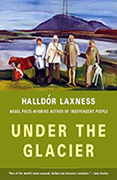 It’s strange that all birds don’t fly in the same way. After all, the air’s just the same at the same place and the same time. I’ve heard that the wings of aeroplanes all conform to the same formula, whereas birds each conform to a formula of their own. It has undeniably required more than a little ingenuity to equip so many birds each with their own formula, and no expense spared, either. Nevertheless, there has perhaps never been a bird that flies as correctly as an aeroplane; yet all birds fly better than aeroplanes if they can fly at all. All birds are perhaps a little wrong, because an absolute once-and-for-all formula for a bird has never been found, just as all novels are bad because the correct formula for a novel has never been found.
It’s strange that all birds don’t fly in the same way. After all, the air’s just the same at the same place and the same time. I’ve heard that the wings of aeroplanes all conform to the same formula, whereas birds each conform to a formula of their own. It has undeniably required more than a little ingenuity to equip so many birds each with their own formula, and no expense spared, either. Nevertheless, there has perhaps never been a bird that flies as correctly as an aeroplane; yet all birds fly better than aeroplanes if they can fly at all. All birds are perhaps a little wrong, because an absolute once-and-for-all formula for a bird has never been found, just as all novels are bad because the correct formula for a novel has never been found. The second time I cried in an art gallery, it was at the Whitney in 2010, and I was with my roommates. We’d gone to see something else—three young men dressed like vagrants, playing harps and shouting, maybe?—and after we’d had enough of that, we wandered through the rooms until we came across
The second time I cried in an art gallery, it was at the Whitney in 2010, and I was with my roommates. We’d gone to see something else—three young men dressed like vagrants, playing harps and shouting, maybe?—and after we’d had enough of that, we wandered through the rooms until we came across 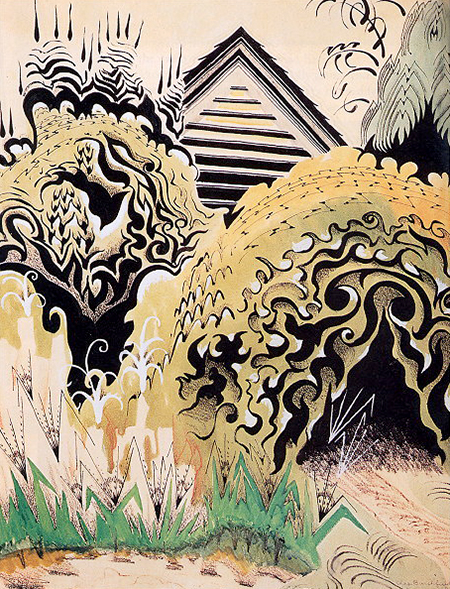
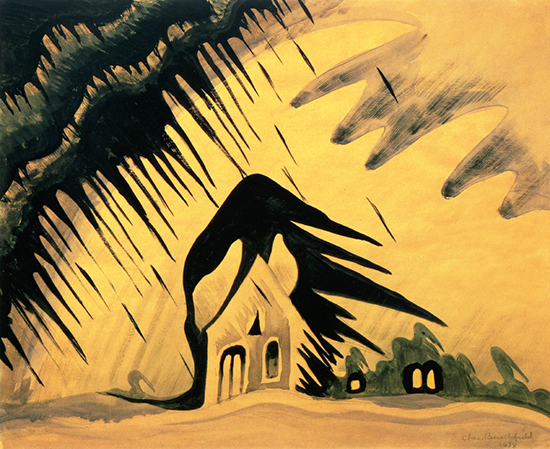
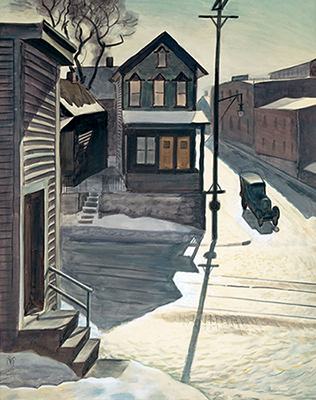
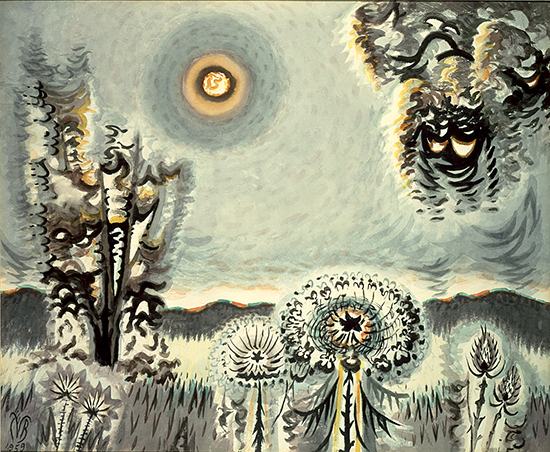
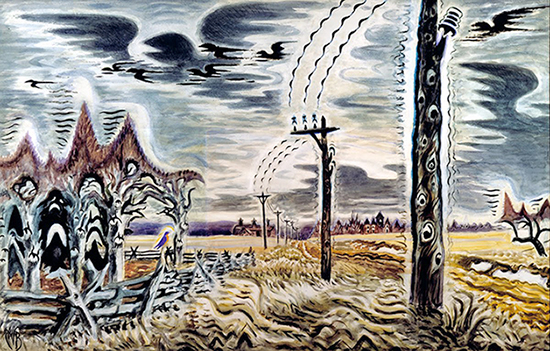
 If Lil Wayne had carked it on cough syrup this weekend, I would have spent today’s post trying to defend my fervently held but ridiculous belief that
If Lil Wayne had carked it on cough syrup this weekend, I would have spent today’s post trying to defend my fervently held but ridiculous belief that 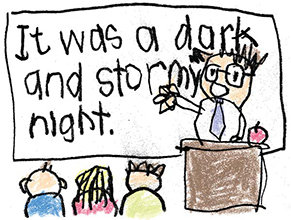 Nathan reckons the alliteration is way over the top, and tells James to tone it down a little. No, make that a lot. Everyone agrees, except for Mark, who likes alliteration, but no one ever listens to Mark because mostly he just talks about Kerouac. Beverly (hip, ironic Beverly; not your Aunt of the same name) asks if it isn’t a little popular fiction to talk of souls swooning? Claire S. agrees, and wants to know, what does it even mean, his soul swooned? Paul Merritt Jnr. says James is a slave to the rhythm—“You’re writing prose, man, not poetry”—and Meek Ruth (that’s what they all call her, behind her back) wonders, quietly, if she’s the only one who doesn’t really get the bit about the descent of their last end? Rebecca says she doesn’t really get it either, and that the word slowly is, like, totally redundant, because swooning already implies slowness. (Mark isn’t sure about that.) Paul Merritt Jnr. agrees with Rebecca, and adds that the repetition of falling and faintly is pretty uncalled for. “Why not just, snow fell in the churchyard?” he asks, and Meek Ruth bites her lip.
Nathan reckons the alliteration is way over the top, and tells James to tone it down a little. No, make that a lot. Everyone agrees, except for Mark, who likes alliteration, but no one ever listens to Mark because mostly he just talks about Kerouac. Beverly (hip, ironic Beverly; not your Aunt of the same name) asks if it isn’t a little popular fiction to talk of souls swooning? Claire S. agrees, and wants to know, what does it even mean, his soul swooned? Paul Merritt Jnr. says James is a slave to the rhythm—“You’re writing prose, man, not poetry”—and Meek Ruth (that’s what they all call her, behind her back) wonders, quietly, if she’s the only one who doesn’t really get the bit about the descent of their last end? Rebecca says she doesn’t really get it either, and that the word slowly is, like, totally redundant, because swooning already implies slowness. (Mark isn’t sure about that.) Paul Merritt Jnr. agrees with Rebecca, and adds that the repetition of falling and faintly is pretty uncalled for. “Why not just, snow fell in the churchyard?” he asks, and Meek Ruth bites her lip.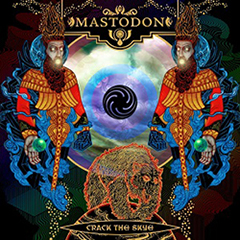 Mastodon is one of the most, if not the most, prominent bands in the heavy metal/rock music scene. They formed in Atlanta, Georgia in 1999. The amazingly talented quartet consists of Troy Sanders as bassist/vocalist, Brent Hinds as guitarist/vocalist, Bill Kellihier on guitar, and Bran Dailor as drummer/vocalist. Mastodon is one of the more notable bands deriving from the New Wave of American Heavy Metal. Other bands from this category include Pantera, Clutch, and Biohazard. Formed out of a mutual admiration for stoner rock bands such as the Melvins and Neurosis, Mastodon also derives influence from classic rock bands such as Led Zeppelin, Rush, and Thin Lizzy. Added to this mixture is a hint of grind-core influence from bands such as Pig Destroyer, Stormtroopers of Death (SOD), and Carcass. Mastodon uses all these elements to create an extremely unique and original sound.
Mastodon is one of the most, if not the most, prominent bands in the heavy metal/rock music scene. They formed in Atlanta, Georgia in 1999. The amazingly talented quartet consists of Troy Sanders as bassist/vocalist, Brent Hinds as guitarist/vocalist, Bill Kellihier on guitar, and Bran Dailor as drummer/vocalist. Mastodon is one of the more notable bands deriving from the New Wave of American Heavy Metal. Other bands from this category include Pantera, Clutch, and Biohazard. Formed out of a mutual admiration for stoner rock bands such as the Melvins and Neurosis, Mastodon also derives influence from classic rock bands such as Led Zeppelin, Rush, and Thin Lizzy. Added to this mixture is a hint of grind-core influence from bands such as Pig Destroyer, Stormtroopers of Death (SOD), and Carcass. Mastodon uses all these elements to create an extremely unique and original sound.